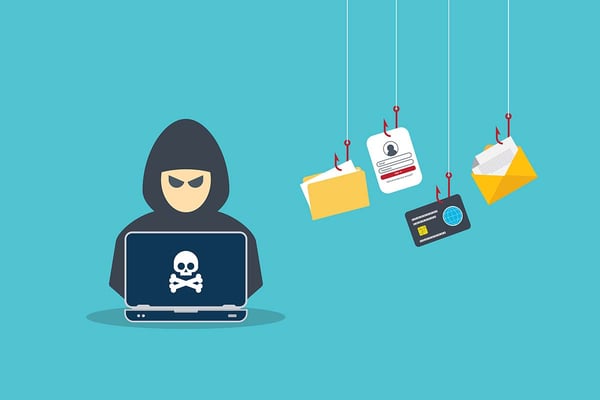
As cyberthreats have evolved under the influence of the work-from-home landscape, it has become increasingly important to a company's success to implement cybersecurity best practices. As hackers and bad actors have become more cunning, the increase in phishing attacks, ransomware, and Trojan horses poses significant danger to any sizable organization.
October marks National Cybersecurity Awareness Month — but even a whole month does not grant this topic the attention that it needs.
People are naturally drawn to safety. Most individuals look both ways before crossing the street, stop at red lights, and implement security measures to protect their house from burglars. But, when it comes to cybersecurity, safety is taken lightly. Safe online practices are often disregarded and considered an inconvenience to users. Simple two-factor authentication is deemed cumbersome and unworthy of the 15 seconds that it requires.
The avoidance of such practices can be far more costly than the time it takes to properly secure online information.
The Goal of Cybercriminals
This might seem obvious, but many people mistake the intentions of cybercriminals. Typically, they do not care about the information they are stealing. It’s about how much money they can get from their victims to gain ownership of the information.
Of course, sometimes hackers do pay special attention to the content they are looking to steal. This is typically the case in personal attacks and banking attacks.
The New Norm: Working From Home
Over the course of 2020 and 2021, businesses have faced a plethora of unforeseen challenges. Sadly, securing their online presence has taken a back seat to social distancing and mask mandates.
While cybersecurity may have been relegated to the back business’ priority, it certainly came to the forefront of cybercriminals’ minds. The transition of millions of workers from the office to private homes presented the perfect opportunity to hack into users’ accounts. As the work from home trend became the new norm, individuals have ventured into coffee shops, libraries, and other areas of shared networks, making the job of cybercriminals even easier.
Evolving Tactics
Over the course of the pandemic, phishing has grown in popularity. Phishing occurs when cybercriminals send out mass emails that contain an emotional lure that prompts individuals to open and read. This has often been done through emails that relate to personal accounts, such as social media accounts or financial accounts.
Phishing is not a new concept; however, we saw the number of phishing attacks nearly double within a matter of weeks. It sounds like a fairly simple concept, and it is. So, why do criminals keep using this method? Because it works. No matter how many times people are told to be cautious when it comes to emails, individuals are still lured into these attacks.
Hackers quickly adapted when the pandemic presented the opportunity to tempt people with COVID-related emails. In the state of desperation that people were in to understand what was happening regarding regulations and protocols, hackers saw the chance to attack vulnerable, unknowing individuals with emails promising news and updates.
The Inconvenience of Security
Businesses and individuals are far too quick to buy into the lie that it won’t happen to them. People underestimate cybercriminals’ doggedness. Understand this: being a cybercriminal is a full-time job for many. This is because successful cyberbreaches pay really well. Once hackers have gained access to so-called valuable information, they have bargaining power. With that, they are able to set a price for ownership, and sometimes this price is hundreds of thousands of dollars. Desperate businesses and individuals feel as though they have no choice but to pay the criminal. Hackers can comfortably sustain themselves if they master their craft.
Anyone can easily fall prey to hackers, whether that is through a foreign email, phishing, ransomware, or simple password guessing. Hackers are a creative bunch; they know that breaches are not “one size fits all.” Even well-prepared businesses and individuals can fall victim to skilled cybercriminals.
Even the pettiest attack can evolve into damaging situations for a business. An intern could send private information to a hacker masquerading with an email nearly identical to that of his boss, and this negligent mistake could cost a business millions of dollars in ransom to get their files and data back or to prevent the public release of confidential data.
Building a Culture of Security
It’s not enough to talk about cybersecurity once a year, or even twice a year. It should not be treated as an event. It should be regarded as the norm. That is the difference between addressing cybersecurity and creating a culture of cybersecurity. Most companies do not secure their data as though their business’ life depends on it, but often it does.
Employees get bogged down with clicking through presentations and assessments about cybersecurity. So, you have to make it fun and rewarding for them to comply with the security regulations that you expect them to follow.
The next cyberattack could come tomorrow or in two years. No matter the timeline, it is important to be prepared. The more you invest into security now, the less it will cost you in the future.
.png)



